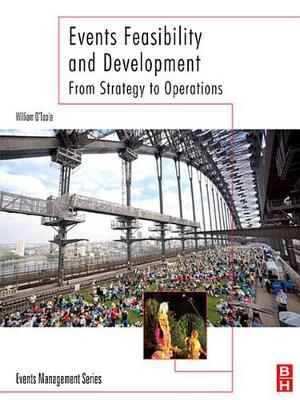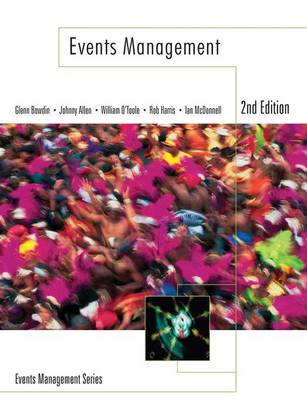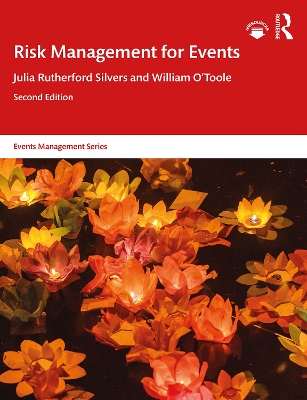Events Management
3 total works
Events Feasibility and Development: From Strategy to Operations answers two fundamental questions faced by all events planners and organizers: how do I justify this event to the client? and why are we spending money on this event?.
With a user-friendly learning structure containing bullet points, questions and exercises and international case studies (Australian Taxation Office, Saudi Arabian events returns, Fuji-Xerox events), Events Feasibility and Development: From Strategy to Operations looks at issues such as:
- the process of creating a feasibility study
- events forecasting models and cost/benefit analysis
- types of events (exhibitions, sports, festivals) and their benefits and returns
- project management tools for measuring return on investment.
Companion website: www.eventsfd.com -- contains videos, colour photos and a list of related resources.
Events Management
by Glenn A. J. Bowdin, William O'Toole, Johnny Allen, Rob Harris, and Ian McDonnell
* Introduces the key concepts of event planning and management
* Discusses the key components for staging an event, and covers the whole process from creation to evaluation
* Examines the events industry within its broader business context
* Provides an effective guide for producers of events
* Contains learning objectives and review questions to consolidate learning
Now in its second edition, this successful text has been fully revised and updated to include new case studies and chapters on event tourism, project management of events, strategic marketing, and issues and trends. It is full of real-life case studies which illustrate key concepts and place theory in a practical context. Examples include the Edinburgh International Festival, Glastonbury Festival, Vodafone Ball, MTV Awards, Notting Hill Carnival, T in the Park and the Daily Mail Ideal Home Show.
Events Management is the must-have introductory text providing a complete A-Z of the principles and practices associated with planning, managing and staging events.
Events Management is supported by a website (http://em.worldofevents.net) which includes updates, downloadable figures form the book and an online `history of events', together with links to websites and other resources for both students and lecturers.
Risk Management for Events
by Julia Rutherford Silvers and William O'Toole
Risk Management for Events is a comprehensive and practical guide that supports academic and professional development programs to prepare individuals for entering or advancement in the international events industry.
Events of all types are produced every day for all manner of purposes, attracting all sorts of people. Creating and managing the environment in which these people will gather carries with it awesome responsibilities — legal, ethical, and financial. To provide a safe and secure setting and to operate in a manner that ensures that the hosting organizations or individuals achieve their objectives in a proper and profitable way, event risk management must be fully integrated into all event plans and throughout the event management process.
This new edition has been revised and updated to include:
- New case studies and examples from a wide range of international destinations and different types of events.
- Updated statistics and data throughout.
- New content on emergent risk, on-site decision-making, terrorism, and public health, including the COVID-19 pandemic, and corruption within events.
- Updated online material, including a case study archive and weblinks to useful resources.
This will be an invaluable resource for all those studying events management.


